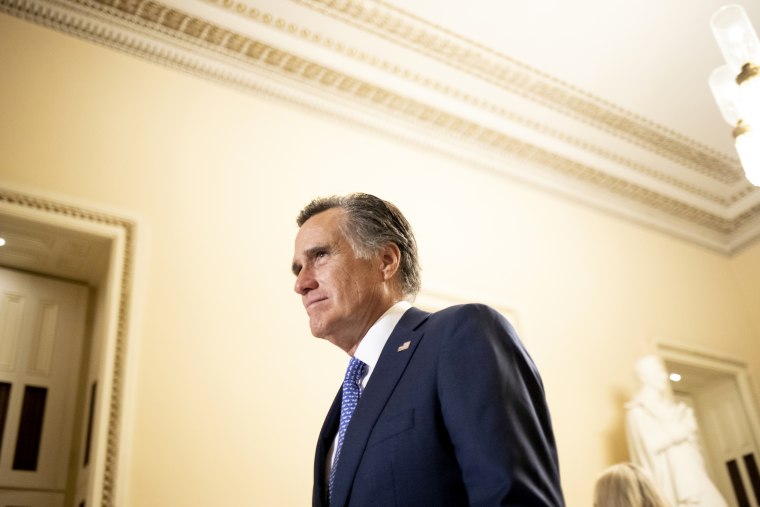Sen. Mitt Romney (R-Utah) has managed to surprise much of the political world in recent months. The Utah Republican, for example, was one of the few members of his party to acknowledge the revelations from the Mueller Report, which made Donald Trump look so awful that Romney said he was "sickened" by the findings.
During the president's impeachment proceedings, Romney was also a rare GOP voice who not only wanted to consider evidence, but who also voted to convict Trump on one count.
But it was even more surprising to see the senator yesterday propose sending every American adult a $1,000 check as part of a response to the economic crisis brought on by the coronavirus crisis.
"Every American adult should immediately receive $1,000 to help ensure families and workers can meet their short-term obligations and increase spending in the economy," his office said in a press release. "Congress took similar action during the 2001 and 2008 recessions. While expansions of paid leave, unemployment insurance, and SNAP benefits are crucial, the check will help fill the gaps for Americans that may not quickly navigate different government options."
As an NBC News report added, Romney also "called for providing federal loans to small businesses for short-term obligations, factoring unexpected housing, travel and other costs related to the outbreak into Pell Grant awards, and allowing deferment of student loans to recent graduates affected by the crisis."
Though Sen. Tom Cotton (R-Ark.) was less specific, the Arkansan appeared on Fox News yesterday and said, "We're going to do everything we can to get cash into the hands of affected workers and families so we can all get through this pandemic together."
As a policy matter, the idea of putting more money in people's hands -- which they would likely spend, stimulating the economy in the process -- is easy to defend. What's surprising about all of this, however, is the fact that the underlying policy motivation is quite progressive.
Indeed, other members of Congress have talked up similar proposals of direct government payments to the public, but these other lawmakers are Democrats.
Two weeks ago, Politico noted that some GOP officials were embracing economic stimulus policies "generally preferred by Democrats." Little did we know at the time that this would mean Mitt Romney -- who argued in 2012 that 47% of Americans are effectively parasites, looking for "big gifts" and "free stuff" -- would eventually endorse direct payments to the public as a form of economic stimulus.
I recently referenced the prevalence of what I call "emergency socialism," in which some on the right put aside their ideologies, embrace big-government solutions to serious crises, and recognize the merits of socialistic ideas in response to unusual circumstances. Don't be surprised if a whole lot of Republicans find emergency socialism a whole lot more appealing in the coming months.

